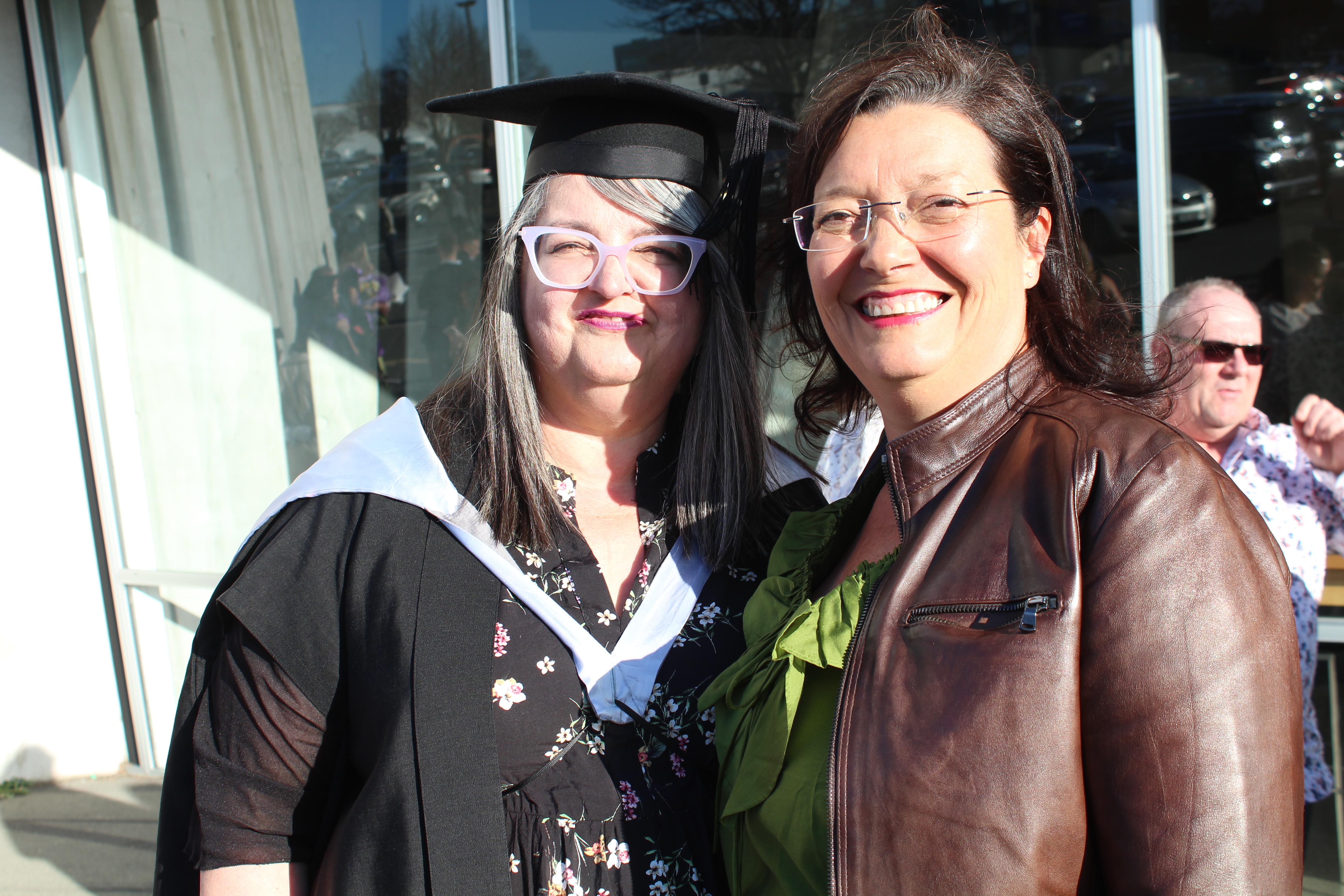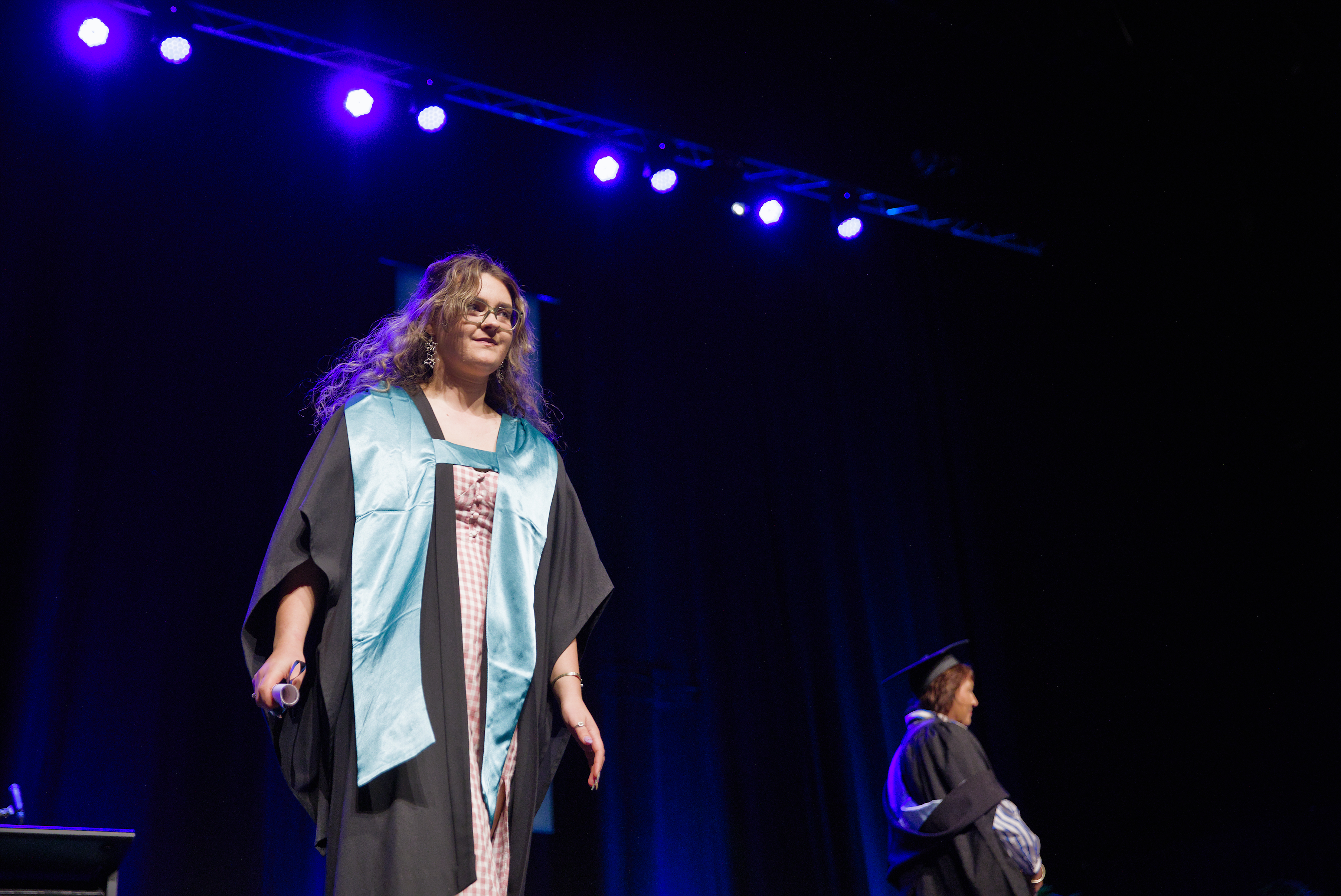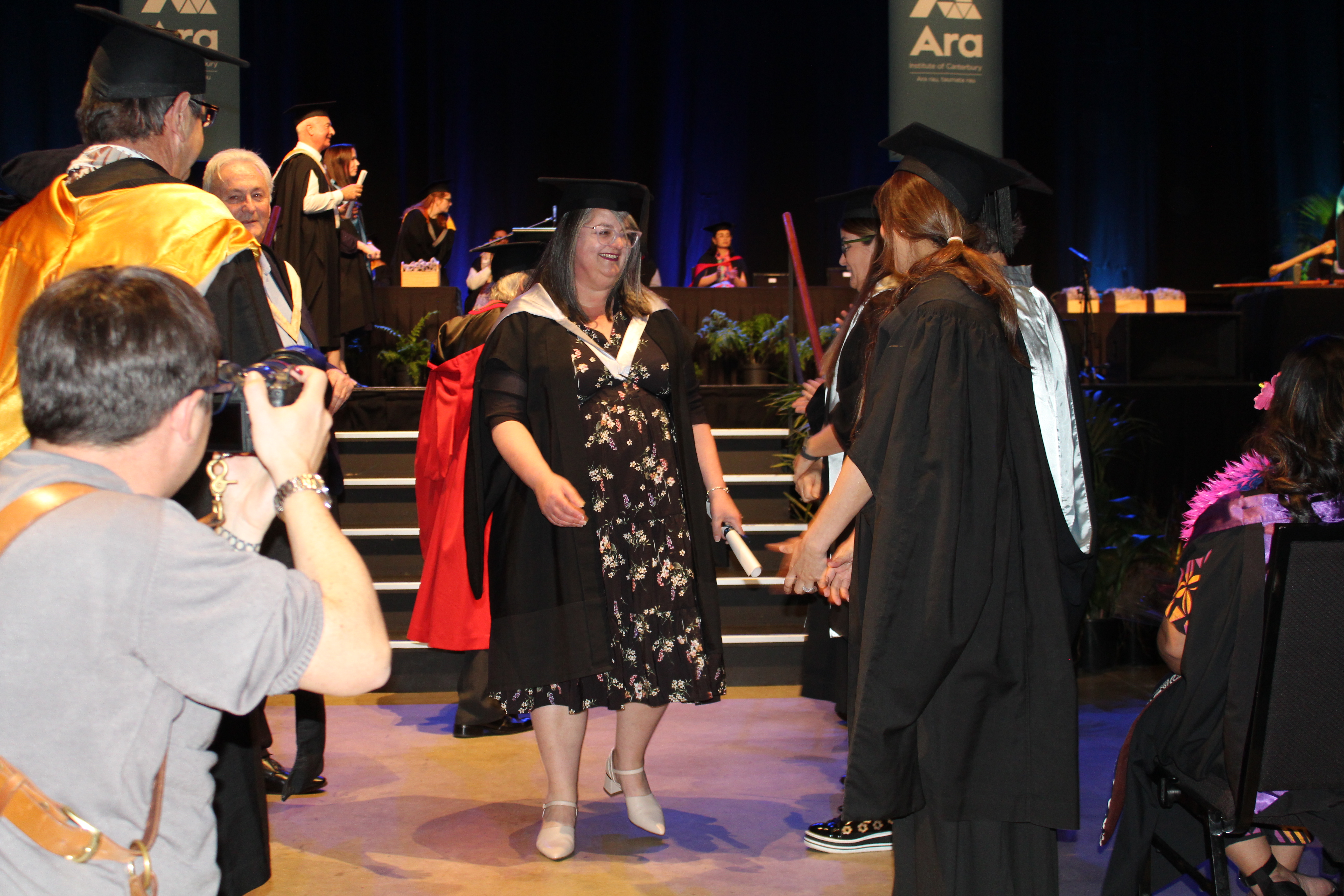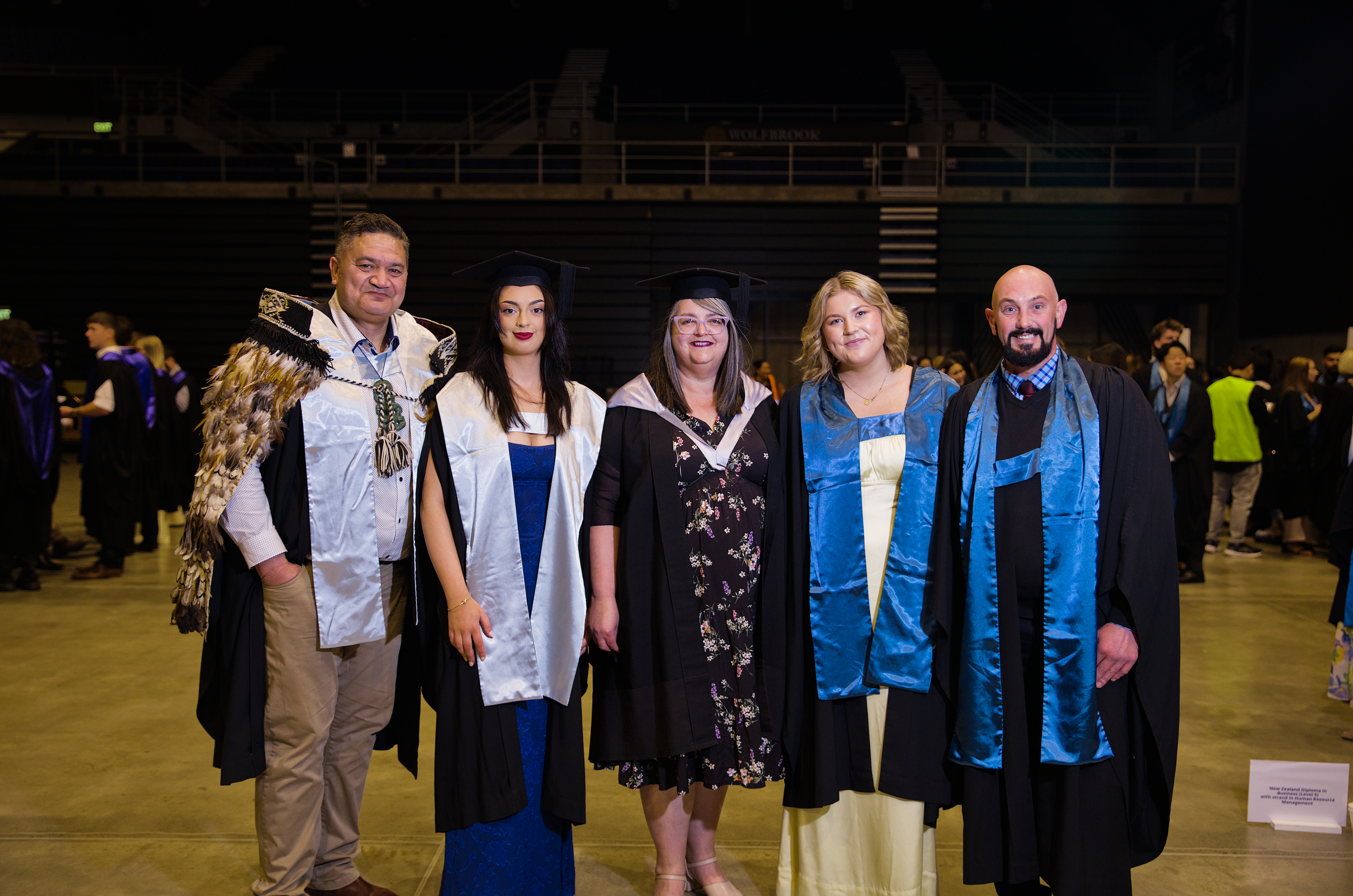From lawyering to learning: how fairness became the focus of one Ara researcher’s work
15 October, 2025
Ara researcher’s work challenges assumptions about fairness and power in the modern workforce

Lynne Coker with her University of Canterbury Master of Laws supervisor, Annick Masselot, at the Ara Spring graduation ceremony
When former lawyer Lynne Coker returned to study after 25 years, she wasn’t looking to change careers - she wanted to challenge how the law defines fairness.
Now a Senior Lecturer in business in the Faculty of Culture and Services at Ara Institute of Canterbury, Coker’s Master of Laws research explored one of Aotearoa New Zealand’s most pressing employment issues: the blurred line between employees and contractors.
Her dissertation, Put to the test: an analysis of the proposed legislation to exclude contractors from seeking judicial determination of employment status, examined how proposed changes to employment legislation would affect those working outside traditional definitions of employment - from midwives and tradespeople to Uber drivers and freelancers.
“I found that commercial law alone couldn’t deliver fairness,” Coker explained. “We needed to rethink what a fair bargain looked like when workers didn’t have genuine choices.”


Left: Lynne’s daughter, Leah Graham, who graduated at Ara’s Spring graduation with a Certificate in Health and Wellbeing (Level 4) in Social Services. Right: Coker being congratulated by Ara colleagues.
Before joining Ara, Coker built a successful legal career in Tauranga, running her own practice while raising her children and chairing their school board. When her family relocated to Christchurch, she began teaching business administration at Ara before moving into employment law and human resources.
“It felt like a full-circle moment,” she said. “I’d come from studying fairness and ethics in theory and found myself helping others think critically about them in practice.”
Her research brought a feminist philosophy lens to the world of work, questioning assumptions about power, vulnerability, and autonomy. She coined the term “constrained contractors” to describe those technically self-employed but with limited real bargaining power.
Coker’s work concluded that legislative reform of the Employment Relations Act, on its own, would make little difference without a broader cultural shift in how fairness is understood and a revision of relevant commercial legislation. “The starting point for most contracting arrangements assumes an equal playing field,” she said. “But for many workers, that simply isn’t true.”
Since completing her master’s degree, Coker has contributed to commentary on proposed employment law reforms for The Conversation and co-authored a paper in the New Zealand Journal of Employment Relations. She also presented her findings at the Australia and New Zealand Industrial Relations Academics Conference earlier this year.
At Ara, Coker’s research and teaching go hand in hand. She co-chaired the institute’s Diversity and Inclusion Working Group and continues to mentor students and graduates who work in human resources, encouraging them to lead with empathy and equity.
“If research doesn’t reach people and spark change, what was the point?” she said. “Our role at Ara is to influence how organisations treat people, through our teaching, our graduates and our research.”
Coker recently proudly crossed the Ara stage in recognition of her University of Canterbury Master’s, in the same ceremony as her daughter Leah, celebrating two generations of learning and what she describes as “a ripple effect of curiosity and courage.”
“Going back to study after so long was daunting,” she reflected, “but once I found my rhythm, research became fun. I discovered that I could contribute to change, even in small ways, and that’s what keeps me going.”
Connect with Coker’s research:

Human resources graduates with Lynne Coker, left to right: Louis Wihongi, Samantha Grady, Lynne Coker, Hannah Elkington, Ryan McCann